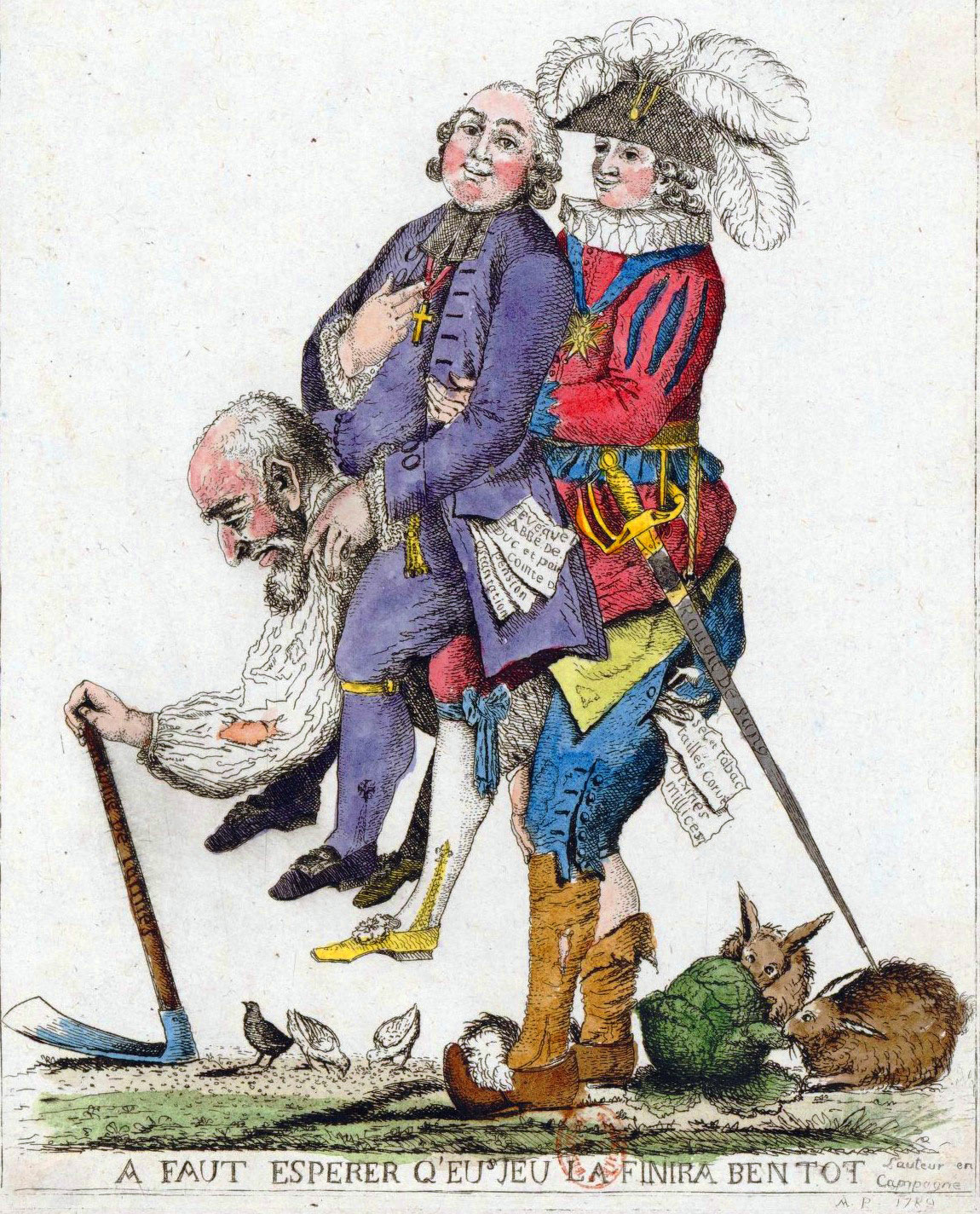France Prior To The Revolution

A caricature of the 3rd Estate carrying the first 2 Estates on his back. (Public Domain photo. Info can be found here)
In the years surrounding the revolutionary period France was one of the richest and most powerful nations on earth. The French people used their great levels of freedom to become the philosophical center of the enlightenment. The Duke d’Orleans would create a private, open air mall-type area called Palais Royal that was popular among the people due to its cafes and bars that often served people in tables on the sidewalks. While this was a beautiful location, it would soon become a safe haven for public debates due to it being the private property of the Duke. This meant that the Kings guards weren’t allowed to police the area, and therefore people were allowed to speak openly and freely about any subject. These debates became much more negative in terms of the monarchy as time progressed, and especially after those that had fought in America returned. The idea of freedom had aroused curiosity, but it was clear that the situation in France was very different than America. France was seen as the strongest and most stable monarchy in Europe, and had been the model for other monarchs.
France was known as a large and wealthy country, being the second most populous country in Europe (after Russia), but beneath the surface they were having significant issues with their economy. The Kings had been spending more than the taxes they received for over a century, and
bridging this gap with loans from the powerful nobles. The significant amount of money they had sent to the US during the American Revolution had become icing on a very troublesome issue, especially since the US chose to ally closer to Britain soon after the war despite the irony of that. At this point it seemed that the King was stuck with two possible solutions to the economic problems they were in. He could either ask the Estates General (which was similar to a rarely used parliament) to allow him to raise taxes to make up the money or he could reinstate taxes on the rich, who they had voided taxes for when they borrowed money from them. It seemed to be political suicide to reinstate taxes on those nobles he had allowed out of the system, and he didn’t want the embarrassment of being the first King since
1614 to be forced to call the Estates General for help.
The peasants of France were in a much tougher situation than others were since they paid the majority of the taxes, and still kept having nobles try to weasel more money out of them for some fee connected with housing. Most would end up paying around 80% of their income on simply buying bread during this time, and were outlawed from hunting for food since that was the right of the King. To make matters worse, the peasants really had no possibility of changing the situation they were in because they had no real power in government, despite representing around 96% of the population. France had long been set up in a hierarchy known as the Estate System, where the power within the Estates General was divided among the social classes.
The First Estate: the Catholic Clergy (bishops and abbots) who owned 10% of the land
The Second Estate: rich nobles who could have the top jobs in nearly any field
The Third Estate: the rest of the 27 million people in France (96%)
The system was set up in a way that each group was allowed to have 1/3rd of the vote despite the numbers of representation being so lopsided in favor of the 3rd Estate. What normally happened was that the first 2 Estates would simply combine to outvote any changes the 3rd Estate wanted, thus keeping the power in their own hands. This is still seen as one of the least fair systems of government in recent history and had a great deal to do with what was to come.
